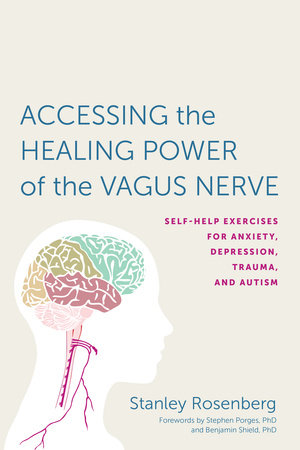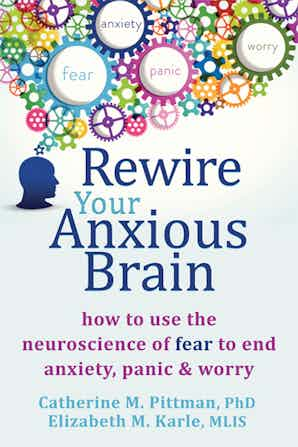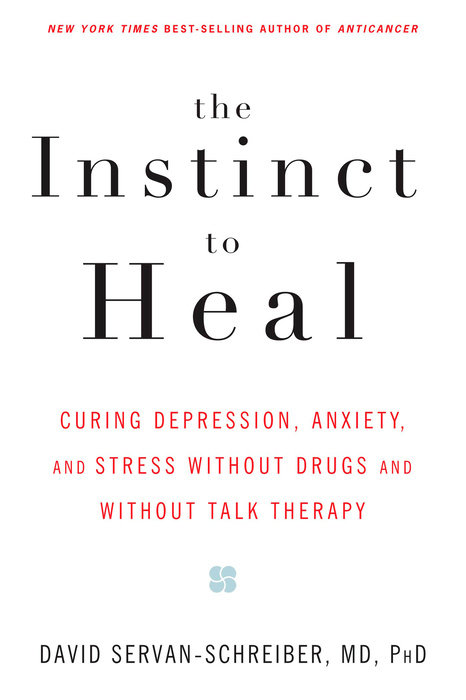How can we stop being caught up in other people’s thoughts? How can we stop thinking about a person or situation—what we should have or could have done differently—when the same thoughts keep looping back, rewinding, and playing through our minds again and again?
YOU MIGHT ALSO LIKE
CLEAR ALL
BY TOPIC
BY TEACHER
BY TYPE
FILTER

TOPIC
- Chronic Health Conditions (42)
- Psychology (37)
- Awareness (34)
- Meditation (34)
- Healing Approaches (33)
- Inflammation (33)
- Mind-Body Connection (32)
- Buddhism (30)
- Mindfulness Meditation (30)
- Emotional and Mental Health (27)
- Self-Discovery (26)
- Self-Development (25)
- Self-Healing (22)
- Well-Being (21)
- Building Character (20)
- Diet and Nutrition (19)
- Anxiety (18)
- Brain Health (18)
- Stress Management (18)
- Living with Illness (17)
- Self-Reflection Practices (17)
- Stress (17)
- Inner Life (16)
- Happiness (15)
- Neuroplasticity (15)
- Trauma Healing (15)
- Depression (14)
- Science and Spirituality (14)
- Transformation (14)
- Autoimmune Disease (13)
- Inner Peace (13)
- Presence (13)
- Trauma (13)
- Breathwork (12)
- Honoring Emotion (12)
- Spiritual Life (12)
- Love (11)
- Resilience (11)
- Self-Control (11)
- Spiritual Awakening (11)
- Spiritual Healing (11)
- Focus (10)
- Human Potential (10)
- Romantic Relationships (10)
- Consciousness (9)
- Habit Formation (9)
- Illness and Injury (9)
- Imagination and Creativity (9)
- Self-Realization (9)
- Spiritual Growth (9)
- Athlete Well-Being (8)
- Child’s Trauma (8)
- Compassion (8)
- Connection with Nature (8)
- Empowerment (8)
- Finding Meaning (8)
- Functional Medicine (8)
- Intention (8)
- Memory (8)
- Perception (8)
- Suffering (8)
- Willpower (8)
- Yoga (8)
- Addiction (7)
- Altered States (7)
- Chronic Pain (7)
- Cognition (7)
- Dementia (7)
- Emotional Intelligence (EQ) (7)
- Goal Setting (7)
- Identity (7)
- Inner Strengths (7)
- Joy (7)
- Physical Health (7)
- Self-Actualization (7)
- Self-Reckoning (7)
- Aging (6)
- Authenticity (6)
- Community Healing (6)
- Forgiveness (6)
- Gratitude (6)
- Grit (6)
- Habits of Mind (6)
- Integrative Medicine (6)
- Leadership (6)
- Mental Health Challenges (6)
- Negative Self-Talk (6)
- Polyvagal Theory (6)
- Psychedelic Research (6)
- Search for Purpose (6)
- Self-Reliance (6)
- Social Justice (6)
- Spiritual Development (6)
- Zen Buddhism (6)
- Caregiver Well-Being (5)
- Communication Skills (5)
- Enlightenment (5)
- Epigenetics (5)
- Generosity (5)
- Healthy Eating (5)
- Life Challenges (5)
- Neurodiversity (5)
- Nutritional Medicine (5)
- Positive Psychology (5)
- Positive Self-Talk (5)
- Psychoanalysis (5)
- Racial Justice (5)
- Religious Experience (5)
- Self-Care (5)
- Self-Compassion (5)
- Self-Limiting Beliefs (5)
- Self-Love (5)
- Sex (5)
- Social Psychology (5)
- Soul Mission (5)
- Tibetan Buddhism (5)
- Activism/Service (4)
- Anger (4)
- Child’s Emotional Growth (4)
- Chronic Fatigue (4)
- Connection (4)
- Courage (4)
- Decision Making (4)
- Energy Healing (4)
- Exercise (4)
- Fear (4)
- Fellowship and Community (4)
- Grief (4)
- Guided Meditation (4)
- Handling a Loved One’s Illness (4)
- Integrity (4)
- Interdependence (4)
- Intimacy (4)
- Letting Go (4)
- Marriage (4)
- Moral Philosophy (4)
- Neuropsychology (4)
- Parenting (4)
- Peak Performance (4)
- Prayer (4)
- Psilocybin (4)
- Psychological Approaches (4)
- Psychology and Spirituality (4)
- Racial Healing (4)
- Relationship Challenges (4)
- Self-Acceptance (4)
- Spiritual Direction (4)
- Talk Therapy (4)
- Transcendent Experience (4)
- Values (4)
- Women’s Well-Being (4)
- Work-Life Balance (4)
- Acceptance (3)
- Access to Education (3)
- Archetypes (3)
- Autism (3)
- BIPOC Well-Being (3)
- Black Well-Being (3)
- Cancer (3)
- Cognitive Behavioral Therapy (3)
- Competition (3)
- Confidence (3)
- Dharma (3)
- Disconnection (3)
- Dysfunctional Childhood (3)
- Embodiment (3)
- Empathy (3)
- Entrepreneurship (3)
- Female Empowerment (3)
- Growth Mindset (3)
- Holism (3)
- Humility (3)
- Insight (Vipassana) Meditation (3)
- Journaling (3)
- Kindness (3)
- Lovingkindness (3)
- Personal Development (3)
- Play (3)
- PTSD (3)
- Relationship with Time (3)
- Stoicism (3)
- Storytelling (3)
- Visions and Hallucinations (3)
- Visualization (3)
- Walking Meditation (3)
- Zen Meditation (3)
- Accepting Love (2)
- Addiction Recovery (2)
- Alcohol Addiction (2)
- Anger Management (2)
- Astral Projection (2)
- Awe (2)
- Ayurveda (2)
- Belonging (2)
- Child’s Challenging Behavior (2)
- Children’s Well-Being (2)
- Clinical Depression (2)
- Cognitive Psychology (2)
- Collective Trauma (2)
- Compassion Meditation (2)
- Conscious Evolution (2)
- Curiosity (2)
- Death and Dying (2)
- Diamond Approach (2)
- Digital Life (2)
- Ecospirituality (2)
- Ego (2)
- Failure (2)
- Fasting for Health (2)
- Freedom (2)
- Goddess (2)
- Incarceration (2)
- Intuition (2)
- Islam (2)
- Jealousy/Envy (2)
- Ketogenic Diet (2)
- Learning Styles (2)
- Loneliness (2)
- Lovingkindness Meditation (2)
- LSD (2)
- Memoir (2)
- Motivation (2)
- Mythology (2)
- Naturopathy (2)
- Offering Support to Others (2)
- Oneness (2)
- Optimism (2)
- Passion (2)
- Patience (2)
- Positive Thinking (2)
- Problem Solving (2)
- Productivity (2)
- Psychedelic-Assisted Therapy (2)
- Quantum Physics (2)
- Ritual (2)
- Sacred Feminine (2)
- Self-Discipline (2)
- Sleep (2)
- Sleep Disorders (2)
- Somatic Experiencing (2)
- Subconscious (2)
- Sutras (2)
- Synesthesia (2)
- Tarot (2)
- The Divine (2)
- Trauma-Informed Therapy (2)
- Trust (2)
- Vulnerability (2)
- Wholeness (2)
- Young Adult Well-Being (2)
- Abandonment (1)
- ADD/ADHD (1)
- Adjusting to Parenthood (1)
- Affirmations (1)
- Animal Connection (1)
- Asking for Help (1)
- Attachment Theory (1)
- Auric Field (1)
- Biofeedback (1)
- Biohacking (1)
- Body Scan Meditation (1)
- Buddha Nature (1)
- Burnout (1)
- Cannabis/CBD (1)
- Chakras (1)
- Challenges with Teens (1)
- Changes in Libido (1)
- Channeling (1)
- Christian Mysticism (1)
- Christianity (1)
- Chronic Anxiety (1)
- Clairvoyance and Precognition (1)
- Climate Change (1)
- Comparing Belief Traditions (1)
- Conflict Resolution (1)
- Creative Well-Being (1)
- Criticism and Rejection (1)
- Cross-Cultural Dynamics (1)
- Dark Night of the Soul (1)
- Death or Loss of a Loved One (1)
- Disabled Well-Being (1)
- Divination Systems (1)
- Divorce and Breakup (1)
- Dream Analysis (1)
- Dreamwork (1)
- Drug Addiction (1)
- Ego Dissolution (1)
- Endurance (1)
- Energy Balancing (1)
- Facing Own Death (1)
- Family Dynamics (1)
- Fate (1)
- Fatigue (1)
- Fiction (1)
- Forest Bathing (1)
- Foster Parenting (1)
- Friendship (1)
- Gender Identity (1)
- Generational Healing (1)
- Global Challenges (1)
- Grace (1)
- Guided Imagery (1)
- Guilt (1)
- Handling a Child’s Illness (1)
- Herbal Supplementation (1)
- Higher Calling (1)
- Hinduism (1)
- Homeopathy (1)
- Indigenous Healing Approaches (1)
- Indigenous Well-Being (1)
- Infidelity (1)
- Inner Child (1)
- Insomnia (1)
- Intergenerational Trauma (1)
- Judaism (1)
- Jungian Analysis (1)
- Kids and Sports (1)
- Life Force Energy (1)
- Lifestyle Medicine (1)
- Longevity (1)
- Managing Energy (1)
- Manifestation (1)
- Mantra Meditation (1)
- Masculine/Feminine Dynamics (1)
- MDMA (1)
- Medical Intuition (1)
- Midlife Crisis (1)
- Mysticism (1)
- Native American Beliefs (1)
- Nightmares (1)
- Past Lives and Reincarnation (1)
- Performance Pressure (1)
- Personality Typing (1)
- Philosophical Approaches (1)
- Poetry (1)
- Post-Traumatic Growth (1)
- Psychedelic Journey (1)
- Racial Discrimination (1)
- Racism (1)
- Reiki (1)
- Relationship with Money (1)
- Reproductive Health (1)
- Rolfing (1)
- Runes (1)
- Self-Pressure (1)
- Self-Worth (1)
- Sexual Health (1)
- Shadow (1)
- Shame (1)
- Social Media Addiction (1)
- Social Presence (1)
- Social Responsibility (1)
- Somatic Practices (1)
- Speaking Your Truth (1)
- Spiritual Fasting (1)
- Spiritual Quest (1)
- Spirituality and Health (1)
- Spirituality and Politics (1)
- Sufism (1)
- Superfoods (1)
- Sustainability (1)
- T’ai Chi (1)
- Taoism (1)
- Telepathy (1)
- The Feldenkrais Method (1)
- Theta Healing (1)
- Time Management (1)
- Traditional Chinese Medicine (1)
- Unconscious Bias (1)
- Weight Concerns (1)
- Whiteness (1)
- Work Ethic (1)
- Work Relationships (1)
FILTER

TEACHER
- Donna Jackson Nakazawa (7)
- Rick Hanson (6)
- Stephen Porges (6)
- Franz Alexander (5)
- Helen Fisher (5)
- Richard Davidson (5)
- The Dalai Lama (5)
- Will Cole (5)
- Amishi Jha (4)
- Annie Hopper (4)
- Lisa Feldman Barrett (4)
- Louise Hay (4)
- Luisah Teish (4)
- Martin Luther King Jr. (4)
- Queen Afua (4)
- Shauna Shapiro (4)
- Andrew Weil (3)
- Bernie S. Siegel (3)
- Bhikku Anālayo (3)
- Chögyam Trungpa (3)
- Daniel Goleman (3)
- David Perlmutter (3)
- don Miguel Ruiz (3)
- Ellen Langer (3)
- Joseph Goldstein (3)
- Judson Brewer (3)
- Rhonda Magee (3)
- Robin Carhart-Harris (3)
- Zindel Segal (3)
- A. H. Almaas (2)
- Amy Scher (2)
- Ashley Neese (2)
- Cyndi Dale (2)
- Danya Ruttenberg (2)
- Debbie Ford (2)
- Deepak Chopra (2)
- Diane Stein (2)
- Eric Maisel (2)
- Herbert Benson (2)
- Joe Dispenza (2)
- Jonathan Haidt (2)
- Larry Ward (2)
- Lorin Roche (2)
- Marcus Aurelius (2)
- Marie-Nathalie Beaudoin (2)
- Mark Epstein (2)
- Martin Seligman (2)
- Noah Levine (2)
- Pema Chödrön (2)
- Peter A. Levine (2)
- Pierre Teilhard de Chardin (2)
- Roger Walsh (2)
- Rudolph Ballentine (2)
- Rumi (2)
- Sigmund Freud (2)
- Stephen Levine (2)
- Thubten Chodron (2)
- Toni Bernhard (2)
- Viktor E. Frankl (2)
- Amit Goswami (1)
- Amy Morin (1)
- Anat Baniel (1)
- Andrew Harvey (1)
- Andy Puddicombe (1)
- angel Kyodo williams (1)
- Angela Duckworth (1)
- Anna Lembke (1)
- Brendon Burchard (1)
- Brené Brown (1)
- Brian Tracy (1)
- Bruce Lipton (1)
- Chalene Johnson (1)
- Chan Khong (1)
- Charles Tart (1)
- Chip Conley (1)
- Craig Hamilton (1)
- Dacher Keltner (1)
- Daisy Khan (1)
- Dan Millman (1)
- Daniel Amen (1)
- Danielle MacKinnon (1)
- David Eagleman (1)
- David Spiegel (1)
- David Steindl-Rast (1)
- Dilip Jeste (1)
- don Jose Ruiz (1)
- Dorothy Day (1)
- Eckhart Tolle (1)
- Edgar Cayce (1)
- Elizabeth Gilbert (1)
- Erin Clabough (1)
- Ervin László (1)
- Evelyn Underhill (1)
- Frans Stiene (1)
- Gabor Maté (1)
- Gary Gach (1)
- Gary Zukav (1)
- Helen Weng (1)
- Howard Gardner (1)
- J. Krishnamurti (1)
- Jack Canfield (1)
- Jack Kornfield (1)
- James Baraz (1)
- James Hollis (1)
- Jeff Foster (1)
- Jeffrey Mishlove (1)
- Jessica Dore (1)
- Jetsunma Tenzin Palmo (1)
- JoAnna Hardy (1)
- Joanna Macy (1)
- Joel Fuhrman (1)
- Joel Kahn (1)
- John C. Parkin (1)
- John Welwood (1)
- José Shinzan Palma (1)
- Joseph M. Marshall III (1)
- Josh Axe (1)
- Joy Bauer (1)
- Judith Orloff (1)
- Kabir Helminski (1)
- Karen Johnson (1)
- Kenneth Pelletier (1)
- Kim Eng (1)
- Larry Dossey (1)
- Larry Yang (1)
- Leah Guy (1)
- Lisa Wimberger (1)
- Lodro Rinzler (1)
- M. Scott Peck (1)
- Marc Ian Barasch (1)
- Mark Hyman (1)
- Martha Beck (1)
- Matt Kahn (1)
- Matthieu Ricard (1)
- Melanie Joy (1)
- Michael A. Singer (1)
- Michael Bernard Beckwith (1)
- Michio Kaku (1)
- Mirabai Bush (1)
- Moshé Feldenkrais (1)
- Naomi Shihab Nye (1)
- Nicole LePera (1)
- Noah Elkrief (1)
- Norman Fischer (1)
- Oliver Sacks (1)
- Patanjali (1)
- Phil Jackson (1)
- Phillip Moffitt (1)
- Poppy Jamie (1)
- Rachel Naomi Remen (1)
- Ram Dass (1)
- Raymond Buckland (1)
- Rich Roll (1)
- Robert Augustus Masters (1)
- Roland Griffiths (1)
- Rolf Gates (1)
- Ruby Wax (1)
- Rupert Sheldrake (1)
- Sadhguru (1)
- Sanjay Gupta (1)
- Sarah Powers (1)
- Scott Shute (1)
- Sharon Salzberg (1)
- Shinzen Young (1)
- Stan Tatkin (1)
- Stephan Bodian (1)
- Sylvia Boorstein (1)
- Tal Ben-Shahar (1)
- Tara Brach (1)
- Tara Stiles (1)
- Ted DesMaisons (1)
- Thomas Hübl (1)
- Thomas Moore (1)
- Tony Robbins (1)
- Wendell Berry (1)
- William James (1)
- Wim Hof (1)
- Yogi Bhajan (1)
- Yung Pueblo (1)










